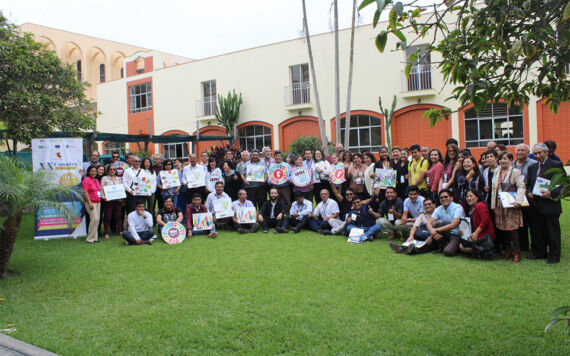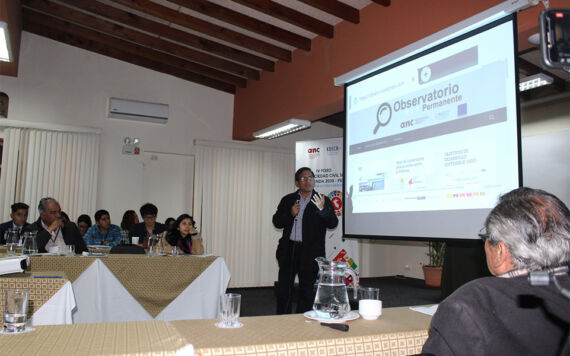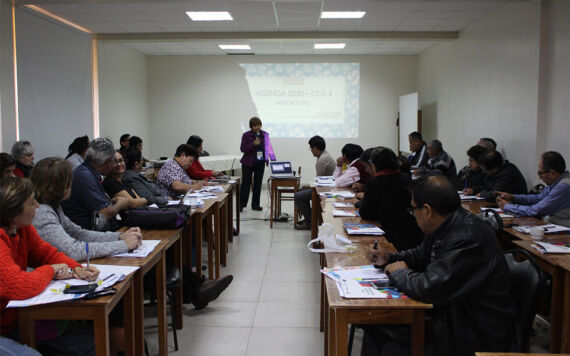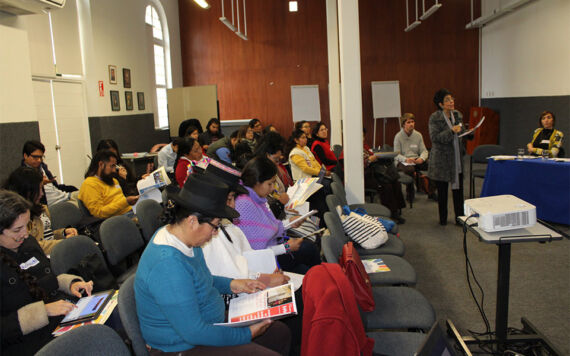| Project Name | Consolidate the Peru Group Agenda 2030 of Civil Society in the Context of the Pandemic for Monitoring its Implementation |
| Commisioned by | Federal Ministry for Economic Cooperation and Development (BMZ) |
| Country | Peru |
| Implementing Organisation | Asociación Nacional de Centros de Investigación, Promoción Social y Desarrollo (ANC) – www.anc.org.pe |
| Duration | November 2021 – April 2023 |
The Challenge
The Civil Society Group “Peru Agenda 2030”: Peruvian civil society organizations, including the Asociación Nacional de Centros de Investigación, Promoción Social y Desarrollo (ANC), have formed the civil society group “Peru Agenda 2030” to strengthen the follow-up process to the implementation of the 2030 Agenda in Peru. The initiative provides follow-up from civil society to government entities in the implementation of the 2030 Agenda, promoting coordination with the private sector, the academic sector and organizing multi-stakeholder dialogues.
2030 Agenda Implementation in Times of Crisis: COVID-19 made it necessary for the group “Peru Agenda 2030” to rethink its way of working. At the end of 2020, a political crisis in Peru was added to the health and economic crisis, and the instability made it difficult to convene government entities to review the 2030 Agenda.
The Objective
The project aims to consolidate the “Peru Agenda 2030” civil society group as a space for the diversity of Peruvian civil society that contributes directly to the articulation of plans and resources for the implementation of the 2030 Agenda.
The Target Group
The project targerts Peruvian civil society organisations that are part of the “Peru Agenda 2030” civil society group as well as government entities.
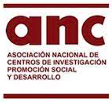
About ANC
The Asociación Nacional de Centros de Investigación, Promoción Social y Desarrollo (ANC) is the largest coalition of civil society organisations (CSO) in Peru. ANC works to strengthen the leadership of CSOs and initiatives through training, capacity development, public debate and participation in the legislative process, all while being committed to defending human rights and local communities.
Website: www.anc.org.pe
The Approach
The project applies an intercultural and gender-based approach with four components:
Data Collection: Systematic collection and organisation of information and indicators from government sectors, the National Institute of Statistics and Information and the National Center for Strategic Planning (CEPLAN), the Focal Point of the 2030 Agenda, as well as reports from the Peruvian government on compliance with the 2030 Agenda.
Data Analysis: The information and indicators obtained are analysed and processed according to the prioritization of the Group “Peru Agenda 2030” of civil society to map progress in the implementation of the 2030 Agenda.
Multi-Stakeholder Dialogue: Implementation of forums and workshops with various stakeholders that contribute to the monitoring and involvement of all sectors in the implementation process of the 2030 Agenda. This multi-stakeholder dialogue allows organized civil society to assume a role in monitoring government commitments.
Capacity Development: Conduct of workshops to strengthen the capacities of civil society to enhance their advocacy and representation. In addition to increasing capacities, sharing knowledge and tools, workshops serve to monitor the implementation process of the 2030 Agenda.
Achieved Results
- A list of priority SDG indicators was updated and an analysis of the impact of COVID-19 on the priority indicators produced
- An annual evaluation report on the 2030 Agenda implementation and follow-up process was produced
- 11 civil society organisations contributed to the five sectoral SDG reports that specify priorities for action for different actors to implement the 2030 Agenda
- An international meeting to analyse the international comparative progress of the SDGs in the world, with respect to Peru and Latin America was condcuted


